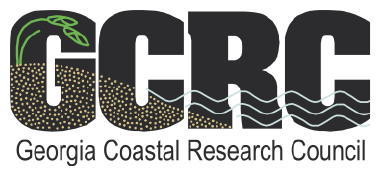| Ocean Acidification Threatens the U.S. Economy | Ocean acidification threatens to cause billions of dollars in damage to the U.S. economy, harming everything from crabs in Alaska to coral reefs in Florida and the Caribbean, NOAA researchers said in a new draft research plan for ocean acidification. At risk are commercial and recreational fishing, tourism, and coral reefs. In Florida, for example, coral reefs are an asset valued at $8.5 billion. | 2020 |
| Linking the biological impacts of ocean acidification on oysters to changes in ecosystem services: A review | Continued anthropogenic CO2 emissions are acidifying our oceans, and hydrogen ion concentrations in surface oceans are predicted to increase 150% by 2100. This review provides a summary of current knowledge of ocean acidification on oyster biology, then links these impacts to potential changes to the provision of ecosystem services associated with healthy oyster reefs. | 2017 |
| Ocean Acidification and Other Ocean Changes Chapter 13 from the Fourth National Climate Assessment (NCA4), Volume I | Anthropogenic perturbations to the global Earth system have included important alterations in the chemical composition, temperature, and circulation of the oceans. Some of these changes will be distinguishable from the background natural variability in nearly half of the global open ocean within a decade, with important consequences for marine ecosystems and their services. However, the time- frame for detection will vary depending on the parameter featured. | 2017 |
| Embracing interactions in ocean acidification research: confronting multiple stressor scenarios and context dependence | Changes in the Earth's environment are now sufficiently complex that our ability to forecast the emergent ecological consequences of ocean acidification (OA) is limited. Such projections are challenging because the effects of OA may be enhanced, reduced or even reversed by other environmental stressors or interactions among species. Despite an increasing emphasis on multifactor and multispecies studies in global change biology, our ability to forecast outcomes at higher levels of organization remains low. Much of our failure lies in a poor mechanistic understanding of nonlinear responses, a lack of specificity regarding the levels of organization at which interactions can arise, and an incomplete appreciation for linkages across these levels. We must also increase our understanding of how linkages and feedback among multiple environmental stressors and levels of organization can generate nonlinear responses to OA. | 2017 |
| Storm Events Responsible for pCO2-rich Water Intrusion in the South Atlantic Bight | Ocean sediment contains carbon from decaying plants and animals that have settled on the ocean floor. When a hurricane hits, the turbulence and pressure changes draw carbon out of pockets in the sediment, making the water near the sea floor very acidic. As the climate warms and hurricanes more powerful, these spikes in acidity will become larger. More research is needed to determine how these fluctuations will effect benthic marine organisms. | 2016 |
| Ocean acidification can mediate biodiversity shifts by changing biogenic habitat | Here we explore how declining pH and carbonate saturation may affect the structural complexity of four major biogenic habitats. Our analyses predict that indirect effects driven by OA on habitat-forming organisms could lead to lower species diversity in coral reefs, mussel beds and some macroalgal habitats, but increases in seagrass and other macroalgal habitats. Available in situ data support the prediction of decreased biodiversity in coral reefs, but not the prediction of seagrass bed gains. Thus, OA-driven habitat loss may exacerbate the direct negative effects of OA on coastal biodiversity; however, we lack evidence of the predicted biodiversity increase in systems where habitat-forming species could benefit from acidification. | 2016 |
| Shifts in coral reef biogeochemistry and resulting acidification linked to offshore productivity | Here we present a 5-y study from the Bermuda coral reef platform that demonstrates how rapid interannual acidification events on the local reef scale are driven by shifts in reef biogeochemical processes toward increasing net calcification and net respiration. These biogeochemical shifts are possibly linked to offshore productivity that ultimately may be controlled by large-scale climatological and oceanographic processes. | 2015 |
| Decadal acidification in the water masses of the Atlantic Ocean | We provide the first (to our knowledge) observation-based acidification trends in the water masses of the Atlantic basin over the past two decades and compare them with climate model results. Observations and model output confirm that pH changes in surface layers are dominated by the anthropogenic component. In mode and intermediate waters, the anthropogenic and natural components are of the same order of magnitude and sign. Large changes in the natural component of newly formed mode and intermediate waters are associated with latitudinal shifts of these water masses caused by the Southern Annular Mode in the South Atlantic and by changes in the rates of water mass formation in the North Atlantic. | 2015 |
| Vulnerability and adaptation of US shellfisheries to ocean acidification | To help to prioritize societal responses to ocean acidification, we present a spatially explicit, multidisciplinary vulnerability analysis of coastal human communities in the United States. We focus our analysis on shelled mollusk harvests, which are likely to be harmed by ocean acidification. Our results highlight US regions most vulnerable to ocean acidification (and why), important knowledge and information gaps, and opportunities to adapt through local actions. The research illustrates the benefits of integrating natural and social sciences to identify actions and other opportunities while policy, stakeholders and scientists are still in relatively early stages of developing research plans and responses to ocean acidification. | 2015 |
